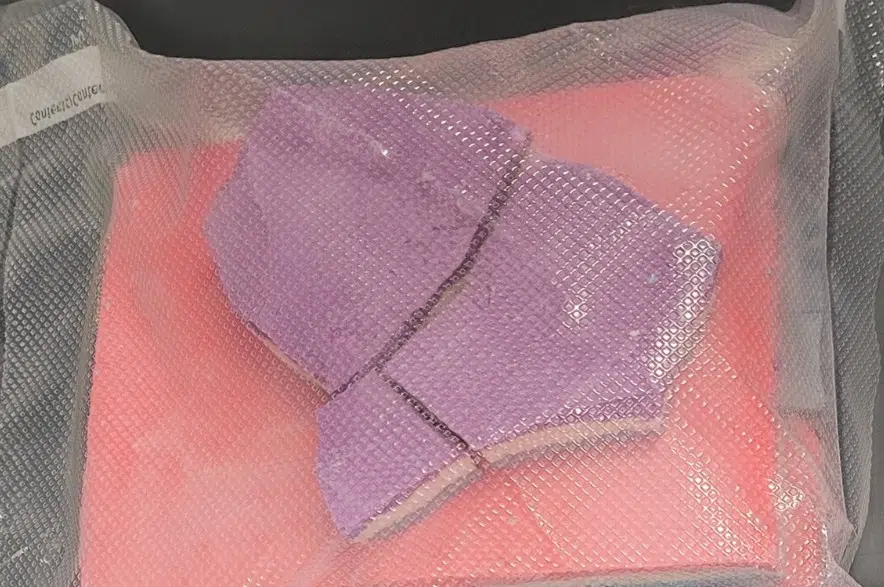Fentanyl and acetyl fentanyl are the leading causes of drug-related deaths in the province, according to the Saskatchewan Coroners Service.
So far this year, there have been 92 confirmed drug toxicity deaths in the province, with another 199 suspected drug toxicity deaths.
Almost 90 per cent of confirmed deaths were related to fentanyl.
Statistics released from the SCS state that from Jan. 1 to Aug. 1, 48 of the confirmed drug toxicity deaths were due to fentanyl, and 32 were due to acetyl fentanyl.
Fentanyl-related drugs have been the most common contributing opioid in confirmed drug toxicity deaths since 2020, SCS said in a statement.
Julene Rawson, director of family support services for Prairie Harm Reduction, said there has been an increase in fentanyl use within the organization’s safe consumption site.
Rawson believes the number of overdoses is higher in comparison to previous years, and predicts it is due to what’s currently in the province’s street drugs.
Rawson said in the past year, there have been 11 overdoses at Prairie Harm Reduction, and only four of them required the use of naloxone, a medication which blocks the effects of opioids.
She said more funding for the organization’s safe consumption site is needed, which would allow the facility to be open for more hours.
“Substance use is not a Monday-to-Friday, 9-to-5 (thing),” she said, adding that providing the ability to use in a safe environment could significantly reduce overdoses and transmittable diseases through the use of needles.
Rawson said that getting rid of tainted drugs and having a safe available supply could be another way of reducing the overdose numbers the province is seeing, but notes it would require approval and involvement from the provincial government.
In 2022, 319 confirmed drug toxicity deaths were fentanyl-related.
Law enforcement agencies also have seen an uptick in the drug. Last week, the Regina Police Service announced it had seized more than 10 kilograms of fentanyl in the first seven months of the year, nearly twice as much as it seized in all of 2022.
International Overdose Awareness Day
The province proclaimed Aug. 31 International Overdose Awareness Day, when people can remember those who have died of an overdose and the families who have lost loved ones.
“Overdoses are impacting communities across the province,” Minister of Mental Health and Addictions Tim McLeod said in a media release. “Addictions affect the lives of your friends, your neighbours, your co-workers and members of your own family. You never know who may be struggling, and it’s important to know that help is available.”
To mark the day, the Ministry of Health has launched a new series of advertisements in hopes of reducing the stigma surrounding overdoses and also reminding those who use drugs or who have loved ones who use drugs that resources are available to help.
The ads focus on Regina’s Ivy Kennedy, who lost two grandchildren to overdoses.
“It’s been hard to talk about it. It’s an every-day struggle,” Kennedy said in the release. “I loved my grandchildren. I tried my best to save them. They didn’t want to die.
“Don’t give up. There is help out there. All you have to do is ask.”
The province has taken steps to address overdoses with the Overdose Outreach Teams pilot project in Regina and Saskatoon. That project was extended for six months in July.
The teams help people who recently experienced overdoses by connecting them with counselling, programs and services to reduce their risk of future overdoses and other drug-related harms.
That project is among many initiatives that were included in the $518 million of funding for mental health and addiction services in the 2023-24 budget.
“Our government is working hard to expand and build capacity as quickly as possible,” said McLeod. “We want people to be able to access treatment and get the help they need quickly and seamlessly. The ultimate goal here is full recovery.”
The provincial government also reminded people that free take-home naloxone kits are available at 326 locations in more than 90 communities in Saskatchewan. That includes 117 pharmacies.
More information on overdose prevention in Saskatchewan is available here.











